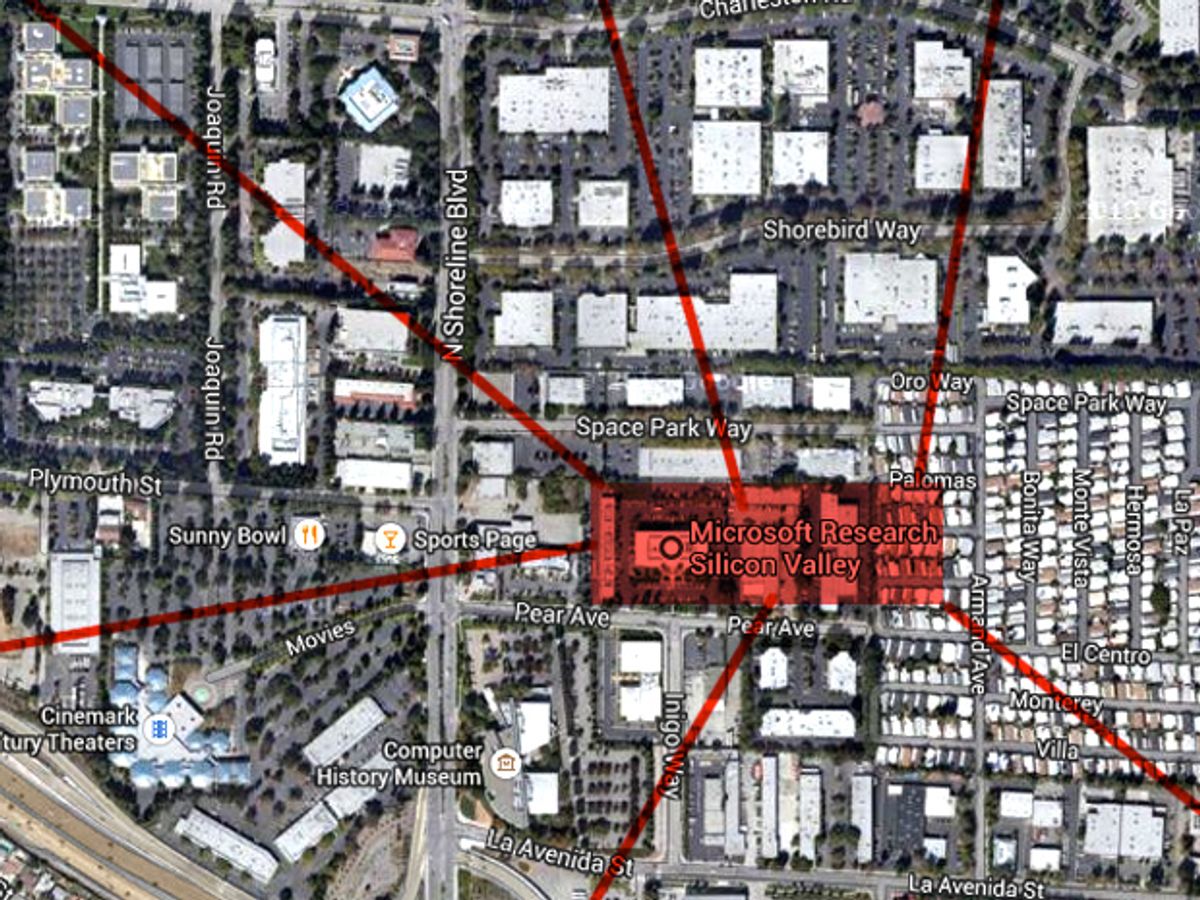In September 2014, Microsoft suddenly shut down its Silicon Valley research lab, cutting loose 50-plus top researchers, most involved in working on developing new algorithms for distributed computing, security, and privacy. It came as a sad shock to the employees, many of who were involved in long-term projects.
The scientific community was outraged: in an open letter to Microsoft executives in October, researchers around the country blasted Microsoft for the timing of its move, that is, after the start of an academic year, making it tough for the laid-off researchers to move over to academia.
But it turns out there are lots of places eager to support a researcher who just might make a breakthrough that could blast through some of the bottlenecks in computing today. Using Linked In and other public sources of data, this week, about four months after the lab closed, I checked in on the whereabouts of the 53 researchers that had been listed on the lab’s web site in the hours before that site went dark. (A new and slightly different list of 60 later emerged here. I used the original list of 53 for this analysis.)
I found no information online for nine researchers, and twelve had yet to update their status beyond their stints at Microsoft Research. These 21 may have taken other jobs at Microsoft, be taking a break before job hunting, be actively looking, or have decided to retire. Two more list their status as unemployed. And one transferred to a Microsoft lab in India.
The rest made quick moves to other Silicon Valley companies—companies, it seems, that are serious about supporting algorithm research.
As predicted, with Google’s campus just out the back door of the Microsoft Mountain View lab, many didn’t go far to find a new home. Google picked up at least eight of the researchers. They are doing research in information retrieval, distributed computing, search technologies, cryptography, privacy, and machine learning.
Another group—at least five researchers—headed for the hills. Literally. They went to VMware, up in Palo Alto’s foothills. VMware is a pioneer in “server virtualization,” that is, it allows a single server to run multiple operating systems. It’s now trying to do the something similar with networking. For some, moving to VMware is almost like going home; some of the Microsoft researchers once worked Xerox Parc; VMware’s new campus is next to Xerox Parc. It appears, according to a Linked In posting of one of the hires, that VMware started a new lab to house at least some of the new recruits. The group reports to Chief Research Officer David Tennenhouse—who came over to VMware from Microsoft last year. Taking on Microsoft’s computer scientists is an interesting move for a company that has been growing quickly in size and importance but doesn’t get a lot of press. (VMware is still hiring researchers—a recent job posting says “Our PhD Engineers Fuel Our Engine of Opportunity.”)
The rest of the Microsoft researchers scattered more widely. Apple picked up at least two, one with expertise in big data and the other focused on machine learning, computer vision, and high-performance computing. One researcher moved over to Samsung Research America to work on distributed systems, in particular, technology that supports mobile users of distributed databases. One took over as chief scientist at Zynga. Salesforce and Amazon also picked up one former researcher each, with the new Salesforce team member bringing expertise in spam detection and micropayments and Amazon’s hire bringing expertise in developing algorithms for transportation networks. Another is involved in a stealth startup based in Palo Alto. Two have temporary stints at the Simons Institute for the Theory of Computing at the University of California, Berkeley. And at least six others found academic homes (in spite of the previously mentioned bad timing) at UCSC, UCLA, Stanford, and other universities.
So the Microsoft Silicon Valley diaspora are settling into their new homes. I’m wishing them luck—and if they plan a reunion, I’m hoping I can get an invitation.
Tekla S. Perry is a senior editor at IEEE Spectrum. Based in Palo Alto, Calif., she's been covering the people, companies, and technology that make Silicon Valley a special place for more than 40 years. An IEEE member, she holds a bachelor's degree in journalism from Michigan State University.



